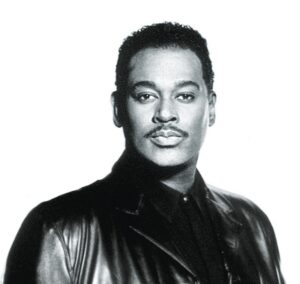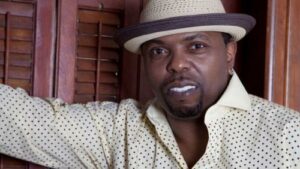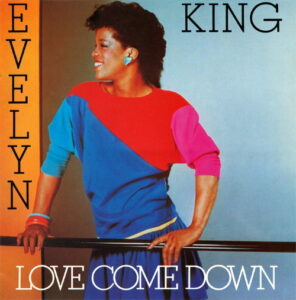Soft and dreamy, a perfect pre-echo of the song’s exquisitely swooning melancholy, the guitar lead-in to The Tracks of My Tears, the 1965 hit by the Miracles, remains one of the most evocative and immediately recognizable introductions of its kind. It was the work of Marv Tarplin, who has died aged 70, and who remained the musical lieutenant of the group’s leader, William “Smokey” Robinson, for almost half a century until 2008.
Tarplin shared the composing credits of The Tracks of My Tears with Robinson and Warren “Pete” Moore, which ensured a healthy income from numerous cover versions, including those by Aretha Franklin, Johnny Rivers, Gladys Knight, Bryan Ferry, Linda Ronstadt, Billy Bragg and Rod Stewart. None of them, however respectable, could recreate the magic of the original, to which the film director Oliver Stone turned when, in the 1986 film Platoon, he needed a piece of music that would evoke all the longing for home experienced by soldiers in Vietnam.
In one of the few interviews given by this quiet, self-effacing man who preferred country and western music to R&B, Tarplin told me that he had been “fooling around” with his Gibson Les Paul Custom guitar, playing phrases from Harry Belafonte’s Banana Boat Song, when inspiration struck. “That’s where I got the idea,” he said. “Belafonte had calypso-type tunes, and it’s basically the same chord changes – three chords, turned around a little bit.” He took the idea to Robinson.
“Marvin is a brilliant guitarist whose music has always inspired me,” Robinson told me. “I wrote all the words with the exception of the first three lines of the chorus thing, the bit that says: ‘Outside, I’m masquerading / Inside, my hope is fading.’ Pete Moore wrote that.” When they took the finished song into the Motown Records studio, Robinson’s falsetto floated with heartbreaking elegance over a cushion of Tarplin’s guitar, the voices of the other Miracles, and the nonpareil rhythm team of the bass guitarist James Jamerson and the drummer Benny Benjamin.
Berry Gordy Jr, the president of Motown and Robinson’s close friend and business partner, heard a test pressing of the new recording at one of the company’s weekly product-evaluation meetings. He recognized a masterpiece when he heard it, and asked Robinson to do no more than repeat the chorus at the end before scheduling the record for immediate release. In the US, the result sold 1m copies, reaching No 2 in Billboard’s R&B chart (held out of the No 1 spot by James Brown’s Papa’s Got a Brand New Bag) and No 16 in the pop chart. In Britain it failed to register until 1969, when it was reissued and reached the top 10, subsequently becoming acknowledged as one of the very finest pop records of its era.
It was not the only Miracles hit to owe its musical foundation to Tarplin’s imagination. Others included I Like It Like That (1964), Going to a Go-Go (1965), The Love I Saw in You Was Just a Mirage (1967), Doggone Right and Point It Out (both 1969), while one of the biggest hits of Robinson’s solo career came in 1979 with Cruisin’, on which they shared the songwriting credits. The pair also co-wrote two hits, I’ll Be Doggone and Ain’t That Peculiar, based on licks provided by Tarplin, for Marvin Gaye in the mid-60’s.
Born in Atlanta, Georgia, Tarplin moved to Detroit with his family during childhood. There, his mother enrolled him in piano lessons before he picked up the guitar. He was walking into a Detroit night club, the Flame Show Bar, one day in 1959 when he was hailed by the four members of an all-girl vocal group, the Primettes, who had seen him from the window of their rehearsal room across the street. Two of them, Florence Ballard and Mary Wilson, attended Northeastern high school with Tarplin. The third and fourth were Betty McGlown and Diane (later Diana) Ross. He became their guitarist, accompanying them as they undertook their first professional engagements, performing cover versions of such songs as The Twist and There Goes My Baby.
Later that year they auditioned for Robinson, who was acting as Gordy’s talent scout at the fledgling Motown label. Robinson promised them an audition with Gordy – which eventually took place, resulting in their subsequent career (minus McGlown) as the Supremes – and he also asked Tarplin to undertake a handful of dates with the Miracles, who had just enjoyed their first hit with Got a Job. That handful of shows would turn into a 49-year professional relationship.
Vocal groups of that era often included a guitarist, whose primary function was to liaise with the musicians providing the backing for package tours or theatre engagements. The Clovers had Bill Harris, the Moonglows had Billy Johnson, and the Miracles had Tarplin. A few months earlier, the inexperienced group had endured the ordeal of turning up at the Apollo theatre in New York – “our first big-time gig,” Robinson wrote in his autobiography – with only the most rudimentary chord charts to give the house band, and despite the help of Ray Charles, who took pity on the naive youngsters, the engagement was a disaster. The arrival of Tarplin ensured that never again would they find themselves so exposed.
The guitarist featured in the group’s publicity photographs, and he appeared on the covers of the Miracles’ first three albums, clearly a fully fledged member, although he later receded into the background. His role meant that he did not become one of the Funk Brothers, Motown’s celebrated roster of session men, who seldom went on the road but spent their lives in the Snakepit, as the studio at the label’s headquarters was known. Only when the Miracles were at work there, or Robinson was producing Gaye, the Temptations, the Marvelettes or the Supremes, was he called upon to record.
He joined the group in time for their (and Motown’s) first million seller, Shop Around, in 1960. Among the earliest products of his songwriting collaboration with Robinson was a ballad called I Can’t Believe, which appeared on the B-side of Everybody’s Gotta Pay Some Dues, a medium-sized hit in 1961. His playing, which in its deceptive simplicity bore some resemblance to that of Curtis Mayfield, was prominent on You Really Got a Hold On Me (covered by the Beatles on their second album); Going to a Go-Go, which featured his driving chorded riff; and The Love I Saw in You Was Just a Mirage, to which he provided plangent acoustic 12-string figures.
When Robinson broke away from the group to launch a separate career in 1973, he invited Tarplin to join him in Los Angeles, where Gordy had set up a new Motown headquarters. At first the guitarist demurred, preferring to stay in Detroit with the remaining members of the group, but he soon changed his mind and relocated to southern California, where he resumed his career alongside the man once described by Bob Dylan as “America’s greatest living poet”.
Tarplin appeared with the members of the Miracles in Motown’s 25th anniversary television special in 1983, alongside the Supremes, Gaye, Stevie Wonder, the Temptations, the Jackson 5 and others. In an echo of the Motown revues of the early years. Mojo magazine’s list of the 100 greatest guitarists of all time, published in 1996, included him at No 99.
He made his home in Las Vegas. His wife, Sylvia, predeceased him in 2004. He is survived by their daughter, Talese, and by two daughters, Lisa and Eboney, from another relationship.









